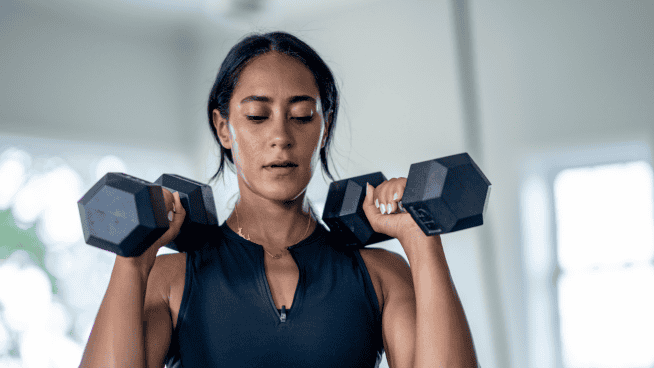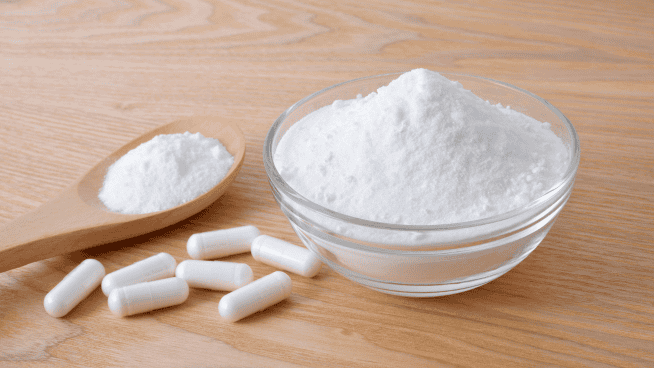How to Plan Your Post-Workout Nutrition
For athletes, post-workout nutrition is critical for muscle growth and recovery. It’s important to refuel with the right foods and eat them at the right time.
Nutrient Timing
One of the most powerful ways to optimize nutrition is proper timing of food intake. (See Using Nutrient Timing to Build Muscle and Lose Fat.) Protein and carbohydrates should be taken in 30 minutes to an hour after your workout.
Protein
Protein is essential for muscle repair and rebuilding. Consume about 0.15-0.25 grams of protein times your body weight. For a 180-pound person, this would mean consuming between 27 and 45 grams of protein. The best type of protein to have after workout is liquid form. Liquid is absorbed and digested a lot faster than whole foods. You should still eat a meal shortly after the shake as well. Each meal should consist of a fist-size portion of protein. (Ask the Experts: How Much Protein Do I Need?)
Carbohydrates
Carbohydrates are essential post-workout, because they restore muscle glycogen that was lost during the workout. Eat low glycemic carbohydrates after a workout. For carbohydrates, consume 0.25 to 0.40 grams times your body weight. If you’re trying to lose weight, use your target body weight to make the calculation. A 150-pound person trying to get to 130 pounds would calculate 130 x 0.25 to .40 = 32.5 to 52 grams of carbs.
Fats
Fats should be limited to 5 grams or less post-workout, because they slow down digestion of protein. Protein needs to be digested immediately, so fat intake should be minimal. Omega-3 fatty acids are great for enhancing the body’s fat burning capacity. Taking omega-3 with each meal has great benefits as well.
Post-workout sample meals
Sample meal 1
- Whole-wheat pasta
- Turkey meatballs
- Broccoli
Nutrition facts: 290 calories, 21g protein, 30g carbs, 5g fat, 8g fiber
Broccoli is great after a workout, because it helps to reduce inflammation and soreness.
Sample meal 2
- Whole-wheat wrap with turkey
- Low-fat cheese
- Lettuce
- Tomato
Nutrition facts: 269 calories, 33g protein, 18g carbs, 5g fat, 9g fiber
Turkey and low-fat cheese are great sources of protein. The whole-wheat wrap provides fiber.
Sample meal 3
- Salmon
- Spinach
- Quinoa
Nutrition facts: 270 calories, 28g protein, 20g carbs, 6g fat, 7g fiber
Salmon is high in protein and packed with omega-3, which supports heart health and helps you recover from intense exercise.
RECOMMENDED FOR YOU
MOST POPULAR
How to Plan Your Post-Workout Nutrition
For athletes, post-workout nutrition is critical for muscle growth and recovery. It’s important to refuel with the right foods and eat them at the right time.
Nutrient Timing
One of the most powerful ways to optimize nutrition is proper timing of food intake. (See Using Nutrient Timing to Build Muscle and Lose Fat.) Protein and carbohydrates should be taken in 30 minutes to an hour after your workout.
Protein
Protein is essential for muscle repair and rebuilding. Consume about 0.15-0.25 grams of protein times your body weight. For a 180-pound person, this would mean consuming between 27 and 45 grams of protein. The best type of protein to have after workout is liquid form. Liquid is absorbed and digested a lot faster than whole foods. You should still eat a meal shortly after the shake as well. Each meal should consist of a fist-size portion of protein. (Ask the Experts: How Much Protein Do I Need?)
Carbohydrates
Carbohydrates are essential post-workout, because they restore muscle glycogen that was lost during the workout. Eat low glycemic carbohydrates after a workout. For carbohydrates, consume 0.25 to 0.40 grams times your body weight. If you’re trying to lose weight, use your target body weight to make the calculation. A 150-pound person trying to get to 130 pounds would calculate 130 x 0.25 to .40 = 32.5 to 52 grams of carbs.
Fats
Fats should be limited to 5 grams or less post-workout, because they slow down digestion of protein. Protein needs to be digested immediately, so fat intake should be minimal. Omega-3 fatty acids are great for enhancing the body’s fat burning capacity. Taking omega-3 with each meal has great benefits as well.
Post-workout sample meals
Sample meal 1
- Whole-wheat pasta
- Turkey meatballs
- Broccoli
Nutrition facts: 290 calories, 21g protein, 30g carbs, 5g fat, 8g fiber
Broccoli is great after a workout, because it helps to reduce inflammation and soreness.
Sample meal 2
- Whole-wheat wrap with turkey
- Low-fat cheese
- Lettuce
- Tomato
Nutrition facts: 269 calories, 33g protein, 18g carbs, 5g fat, 9g fiber
Turkey and low-fat cheese are great sources of protein. The whole-wheat wrap provides fiber.
Sample meal 3
- Salmon
- Spinach
- Quinoa
Nutrition facts: 270 calories, 28g protein, 20g carbs, 6g fat, 7g fiber
Salmon is high in protein and packed with omega-3, which supports heart health and helps you recover from intense exercise.








